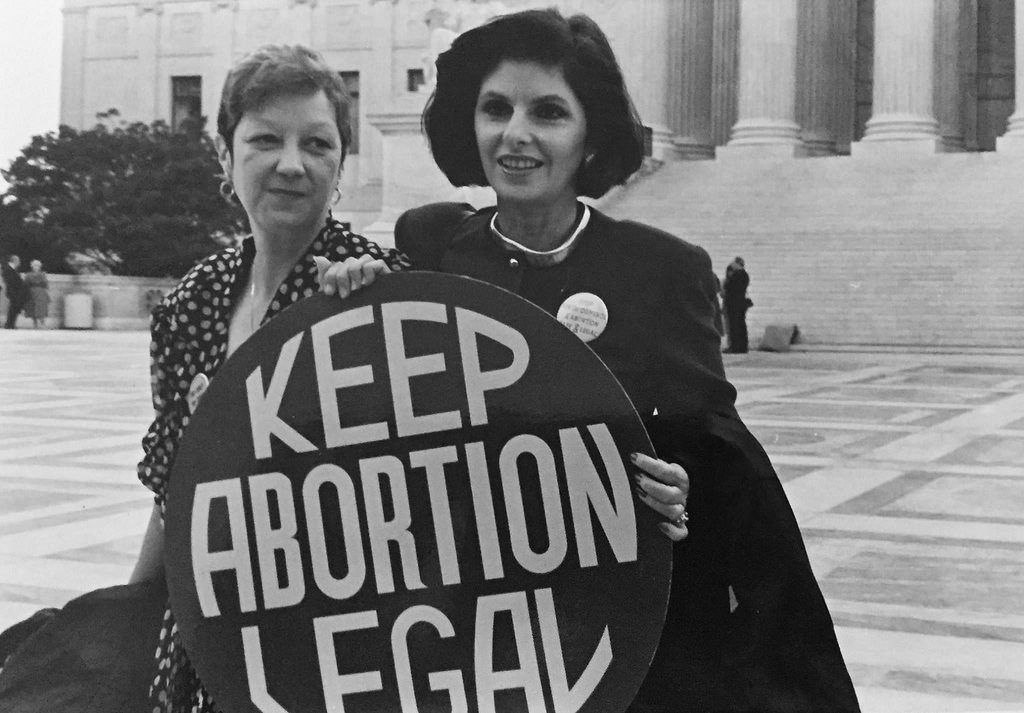Over-the-Counter Birth Control: Implications For Reproductive Healthcare After Roe V. Wade

Table of Contents
Increased Access and Convenience
The most significant potential benefit of OTC birth control is increased accessibility and convenience. This shift could revolutionize family planning for many individuals.
- Reduced Healthcare Barriers: Access to affordable birth control becomes significantly easier. Obtaining birth control pills, patches, or emergency contraception no longer requires navigating healthcare provider appointments, potentially lengthy wait times, and associated costs. This is particularly impactful for those with limited access to healthcare providers, those in rural areas, or those facing financial constraints.
- Enhanced Privacy: The ability to purchase birth control discreetly, without a doctor's visit, respects individual privacy and autonomy. This is especially important for individuals who may feel uncomfortable discussing their reproductive health with a healthcare professional.
- Improved Adherence: Easier access to birth control could lead to improved adherence to prescribed regimens. The convenience of purchasing OTC birth control from local pharmacies could significantly reduce missed doses and lapses in contraceptive use.
- Wider Availability: OTC birth control would expand availability beyond traditional healthcare settings, placing it within reach in various retail outlets and pharmacies. This broader distribution network could ensure wider access for diverse populations, including those in underserved communities.
- Cost Savings: While the exact cost of OTC birth control remains to be seen, there’s potential for significant cost savings compared to the expense of doctor’s visits, prescription costs, and insurance co-pays associated with obtaining birth control through traditional channels. This cost-effectiveness could lead to improved affordability and compliance.
Potential Impact on Unintended Pregnancies and Abortion Rates
Increased access to OTC birth control could have a substantial impact on unintended pregnancies and subsequent abortion rates.
- Pregnancy Prevention: Studies consistently demonstrate a strong correlation between increased access to contraception and a reduction in unintended pregnancies. Making birth control readily available through OTC options could significantly contribute to lowering these rates.
- Abortion Rate Reduction: By preventing unintended pregnancies, broader access to OTC birth control has the potential to decrease the number of abortions sought each year. While not a guaranteed outcome, it represents a significant public health consideration.
- Addressing Disparities: However, it's crucial to acknowledge that socioeconomic factors and geographic location continue to affect access to healthcare. The success of OTC birth control in reducing unintended pregnancies and abortions will depend on addressing existing healthcare disparities. Strategies to ensure equitable access for all demographics are crucial for maximizing the positive impacts.
- Public Health Implications: The potential for a substantial decrease in unintended pregnancies carries significant positive implications for public health resources. Fewer unintended pregnancies translate to reduced strain on healthcare systems, fewer instances of high-risk pregnancies, and less demand for related social services.
Concerns and Challenges of OTC Birth Control
While the benefits of OTC birth control are significant, several concerns and challenges require careful consideration.
- Medication Errors and Misinformation: The lack of direct professional guidance could increase the risk of medication errors, especially with hormonal contraceptives. The potential for the spread of misinformation regarding proper usage and potential side effects is another significant concern that necessitates robust public health campaigns.
- Patient Education and Understanding: Ensuring patients understand how to use birth control correctly, recognize potential side effects, and know when to seek professional medical advice is paramount. Comprehensive patient education materials and easily accessible information are crucial.
- Inappropriate Use and Misuse: The potential for misuse or inappropriate use of hormonal contraceptives without proper guidance is a legitimate concern. This requires careful consideration of patient education and the availability of reliable information sources.
- The Need for Comprehensive Public Health Campaigns: Addressing the concerns above requires proactive public health initiatives. These campaigns should focus on promoting safe and effective contraceptive use, dispelling misinformation, and educating the public on the importance of professional guidance where needed.
The Role of Pharmacists and Other Healthcare Professionals
Pharmacists and other healthcare professionals play a vital role in mitigating the risks associated with OTC birth control.
- Pharmacist Training and Counseling: Equipping pharmacists with the necessary training and resources to provide accurate information and effective counseling regarding OTC birth control options is essential. This includes comprehensive education on potential side effects, contraindications, and interactions with other medications.
- Addressing Patient Concerns and Referrals: Pharmacists can serve as a valuable first point of contact for individuals seeking information or experiencing concerns related to birth control. Their role includes addressing patient questions, providing appropriate referrals to healthcare providers when necessary, and ensuring safe and responsible use.
- Expanding Healthcare Access: By providing crucial information and support, pharmacists can actively contribute to expanding access to reproductive healthcare, especially in underserved communities.
Legal and Regulatory Considerations
The implementation of OTC birth control is intertwined with legal and regulatory frameworks.
- FDA Approval Process: The rigorous FDA approval process for OTC medications needs to be carefully considered. Ensuring the safety and efficacy of over-the-counter birth control options requires thorough evaluation.
- State Laws and Variations: State laws regarding access to contraception vary significantly. The legal landscape concerning reproductive rights has implications for the implementation and acceptance of OTC birth control in various states.
- Reproductive Rights Legislation: The ongoing debate surrounding reproductive rights will continue to shape the regulatory environment and public opinion concerning OTC birth control.
Conclusion
The shift towards over-the-counter birth control presents both exciting possibilities and significant challenges. Increased access and convenience could dramatically improve reproductive healthcare outcomes, potentially leading to fewer unintended pregnancies and lower abortion rates. However, addressing concerns about medication errors, misinformation, and patient education is critical. The active involvement of healthcare professionals, especially pharmacists, is essential for successful implementation. A comprehensive approach encompassing robust public health initiatives, easily accessible patient education, and clear regulatory frameworks is necessary to maximize the benefits and minimize the risks of OTC birth control. Further research and ongoing dialogue are crucial to ensure equitable access to reproductive healthcare for everyone. We must continue to advocate for policies that support access to safe and effective over-the-counter birth control.

Featured Posts
-
 High Potential Season 1 When Morgan Wasnt So Smart
May 10, 2025
High Potential Season 1 When Morgan Wasnt So Smart
May 10, 2025 -
 Details Emerge In Racist Stabbing Woman Kills Man In Unprovoked Attack
May 10, 2025
Details Emerge In Racist Stabbing Woman Kills Man In Unprovoked Attack
May 10, 2025 -
 Su Ung Ho Cua Ban Trai Giup Lynk Lee Toa Sang Sau Chuyen Gioi
May 10, 2025
Su Ung Ho Cua Ban Trai Giup Lynk Lee Toa Sang Sau Chuyen Gioi
May 10, 2025 -
 Community Mourns After Senseless Racist Killing
May 10, 2025
Community Mourns After Senseless Racist Killing
May 10, 2025 -
 Tonights Nhl Playoffs Oilers Vs Kings Game 1 Predictions And Best Bets
May 10, 2025
Tonights Nhl Playoffs Oilers Vs Kings Game 1 Predictions And Best Bets
May 10, 2025
